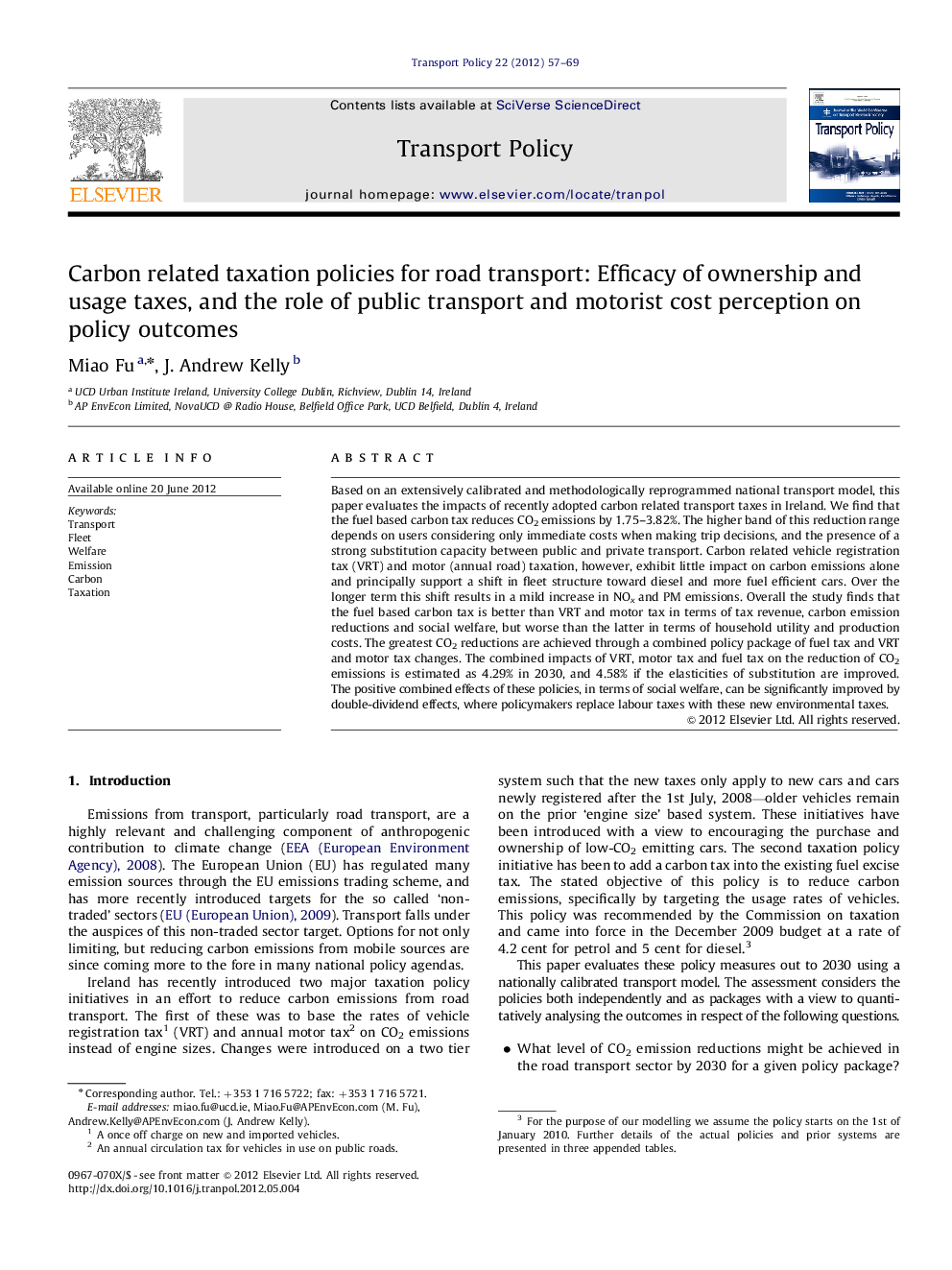| Article ID | Journal | Published Year | Pages | File Type |
|---|---|---|---|---|
| 1065240 | Transport Policy | 2012 | 13 Pages |
Based on an extensively calibrated and methodologically reprogrammed national transport model, this paper evaluates the impacts of recently adopted carbon related transport taxes in Ireland. We find that the fuel based carbon tax reduces CO2 emissions by 1.75–3.82%. The higher band of this reduction range depends on users considering only immediate costs when making trip decisions, and the presence of a strong substitution capacity between public and private transport. Carbon related vehicle registration tax (VRT) and motor (annual road) taxation, however, exhibit little impact on carbon emissions alone and principally support a shift in fleet structure toward diesel and more fuel efficient cars. Over the longer term this shift results in a mild increase in NOx and PM emissions. Overall the study finds that the fuel based carbon tax is better than VRT and motor tax in terms of tax revenue, carbon emission reductions and social welfare, but worse than the latter in terms of household utility and production costs. The greatest CO2 reductions are achieved through a combined policy package of fuel tax and VRT and motor tax changes. The combined impacts of VRT, motor tax and fuel tax on the reduction of CO2 emissions is estimated as 4.29% in 2030, and 4.58% if the elasticities of substitution are improved. The positive combined effects of these policies, in terms of social welfare, can be significantly improved by double-dividend effects, where policymakers replace labour taxes with these new environmental taxes.
► Costs considered in trips and elasticity of substitution affect policy efficacy. ► Ownership taxes principally encourage a shift in fleet structure toward diesel cars. ► Fuel carbon taxation reduces CO2 emissions by 1.75–3.82% depending on scenarios. ► Fuel carbon tax is better than ownership taxes in terms of welfare and revenue.
